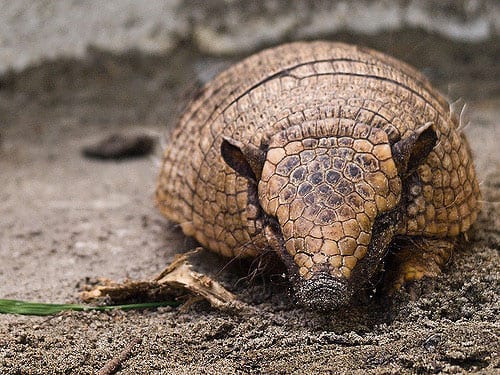Okay, yes, so this study was published in 2011, but time is obsolete, am I right? Especially when it comes to information as important as this.
Listen closely.
Remember leprosy? Remember that horrible skin disease of our nightmares? Thank God it doesn’t exist anymore, right? JOKE’S ON YOU, because it DOES.
Call it leprosy if you want to, but the politically correct name is Hanson’s Disease.

Over 250,000 cases are still found in the world today—hundreds of them in the United States alone.
Per common knowledge, leprosy can only be passed from human to human. But, according to a recent study, there may be another culprit on the loose–a four-legged culprit.

That’s right–armadillos. Pesky, little, adorable, hard-shelled devils. Thanks to genetics, we now have permission to demonize wildlife!
Dream come true, right?

On a more serious note, this is a great achievement in the medical world, because the more we know about how diseases are transmitted, the better the prevention.
While the risk of getting leprosy from an armadillo is super low, it doesn’t hurt to be AWARE.
When it comes to rare diseases, awareness is the best place to start. So, yeah, laugh all you want, but don’t come crying to us when you come back from visiting family in Texas with odd sores on your arms.
During my research, I found a fact sheet on armadillos, graciously provided by National Geographic.
Did you know that armadillos are omnivores, meaning they eat both meat AND veggies? As for life span, they typically live between 12 and 15 years. Not very long if you ask me—which makes me wonder: How do armadillo years compare to human years? Is it 1:7 like dog years?
I bet you didn’t know armadillos are extremely religious. The majority of them apparently subscribe to Buddhism… Who woulda thunk?

What’s the lesson learned here? If an armadillo approaches you to talk about his religion, don’t, because he may just want to give you leprosy… eh hem, sorry, Hansen’s disease.
Okay, it seems like pointless information to know that humans can contract Hansen’s disease from armadillos, but there’s got to be a benefit, right? What do you think? Leave a comment below!


